UN Mongolia Highlights 2024
As we bid farewell to 2024, we thank all who supported our endeavours for a sustainable, inclusive Mongolia. Here are a few to highlight among others.
Advancing Gender Equality: Mongolia’s 2024 Parliamentary Election marked a significant milestone in gender equality, with 32 female parliamentarians elected, comprising 25.4% of the total members. This achievement highlights progress in ensuring women's representation at the decision-making level. The UN Mongolia, mainly through UNDP, is proud to have been a dedicated partner in supporting this important advancement over the years.
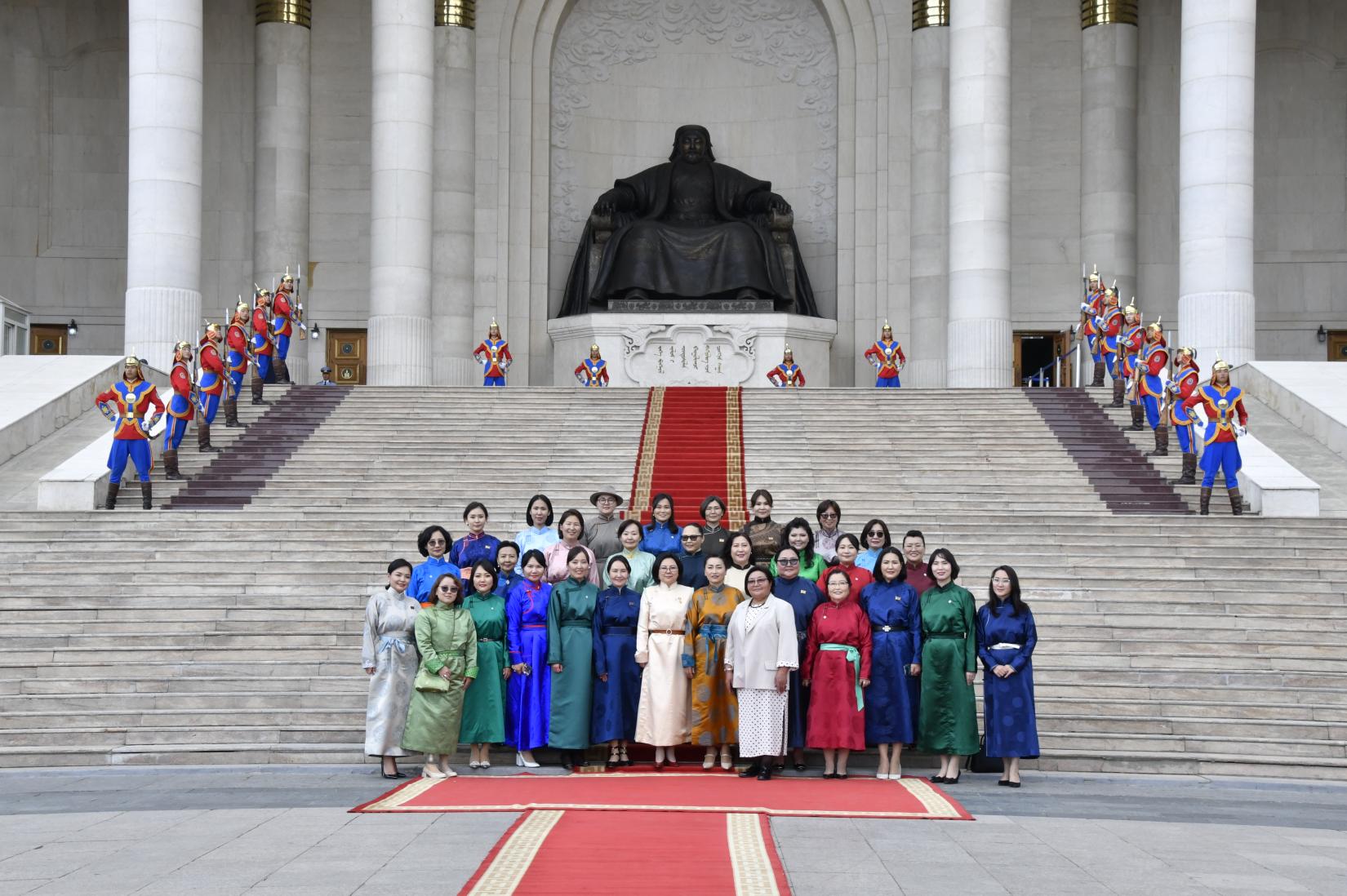
UN’s continued advocacy for women empowerment: Mongolia, in partnership with UN Mongolia, hosted the World Women’s Forum in August under the auspices of the President of Mongolia, reaffirming its commitment to advancing women’s rights and embedding gender equality. The event brought together global women leaders, including UN Deputy Secretary-General Amina J. Mohammed, to spotlight Mongolia's initiatives and drive for gender equality on the international stage. UN agencies led six thematic sessions, and the forum's final recommendations will help pave the way for the Beijing+30 forums.
UN Mongolia’s policy advocacy for sustainable development: Thanks to UN Mongolia’s advocacy and policy recommendations for regional and rural development, as highlighted in the second Voluntary National Review on SDG implementation, the new Government’s agenda prioritizes regional development by balancing urban and rural growth over the next four years, aiming to create favorable living conditions across all regions. The four main priorities of the Government’s Action Plan (2024–2028) and UN Mongolia’s three strategic priority areas are closely aligned.
Mobilization of Humanitarian Aid for Dzud-Affected Herders: The Humanitarian Country Team, comprising international humanitarian organizations, successfully mobilized $10.6 million— almost 80 % of the required funds—to support vulnerable herders impacted by dzuds in 2023-2024. These extreme winter conditions led to the loss of over 8.1 million livestock, leaving thousands of herders with little or no means to sustain their livelihoods. Facilitated through Joint FAO, UNICEF and UNFPA, the UN Mongolia helped more than 25,000 people thanks to $1.55 million of aid from the UN’s Central Emergency Relief Fund.
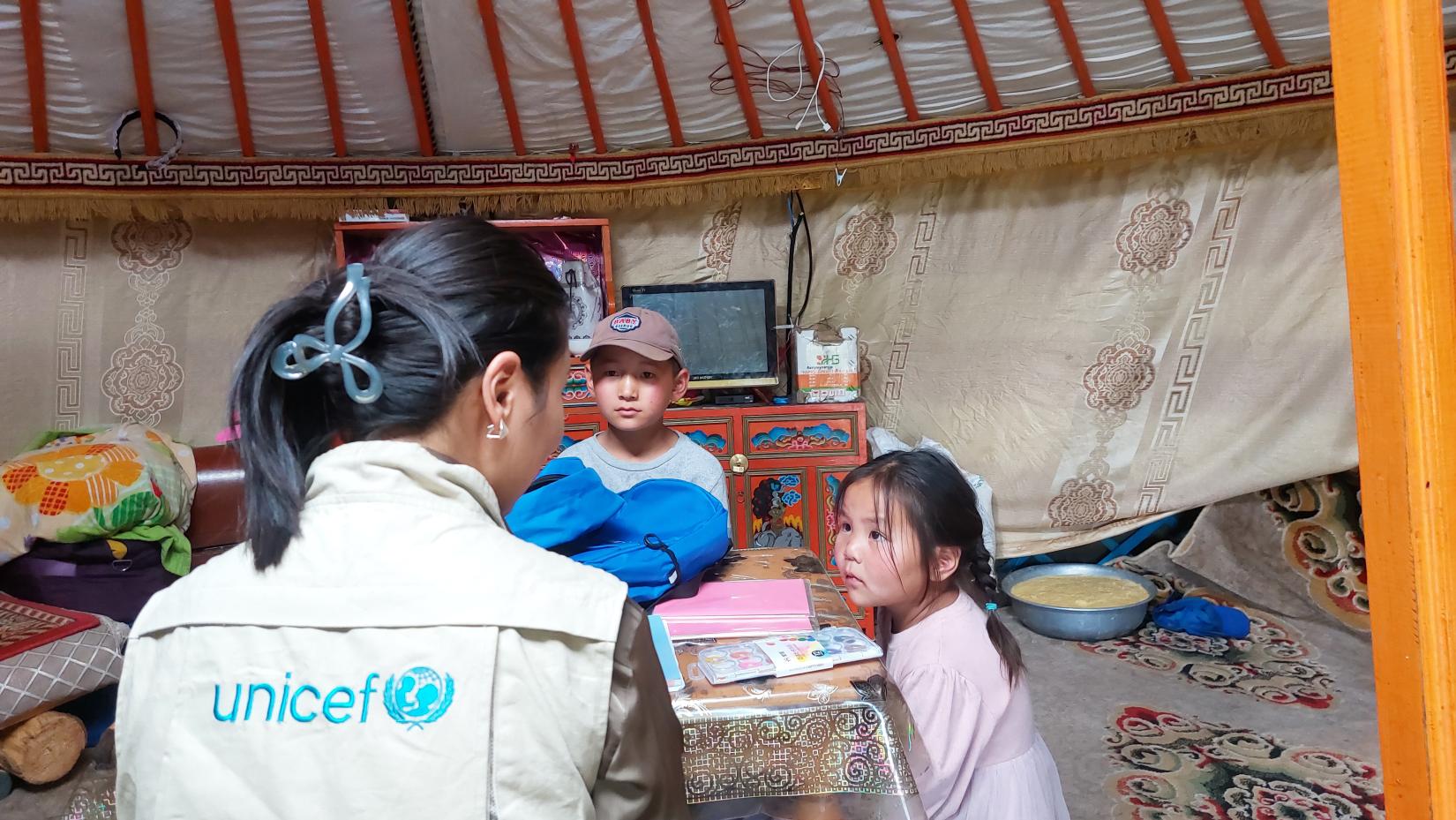
Reaching Out to the Unreached: UN Resident Coordinator Tapan Mishra visited the Tsaatan community, reindeer herders living in the remote Taiga region of northern Mongolia. This marked the first-ever visit by a high-level UN representative to these people from unique ethnic minority group. Isolated more than a thousand kilometers from the mainstream of society, the Tsaatan are among the most left-behind communities, with limited access to telecommunications, basic health and education services, as well as water, sanitation, and hygiene facilities. Following his visit, Mr. Mishra advocated for the rights of Tsaatan children to quality education, emphasizing the urgent need to improve the dire dormitory environment.
Driving Digital Transformation: Mongolia has made significant strides in advancing digital transformation, climbing from 74th in 2022 to 46th in the 2024 UN e-Government Development Index. The UN Mongolia has closely partnered with the Government to advance its digitalization agenda, collaborating on the annual Global Digital Dialogue, the ICT Expo, and the eTrade Ready assessment report. It also co-chairs the Digitalization Working Group with the Ministry of Innovation, Digital Development, and Communications to coordinate support from development partners. In 2024, UNDP and UNICEF jointly launched a project to further strengthen digital government services.

Aligning Budget Planning with Development Priorities: A joint initiative by UNDP, ILO, and FAO with generous funding from the EU played a pivotal role in aligning budget planning with national development priorities through results-based budgeting. It promoted employment and labour standards, supported Technical and Vocational Education and Training (TVET), including the approval of the National Qualification Framework and Occupational Indexing, and facilitated the development of export-oriented camel milk and offal meat value chains.
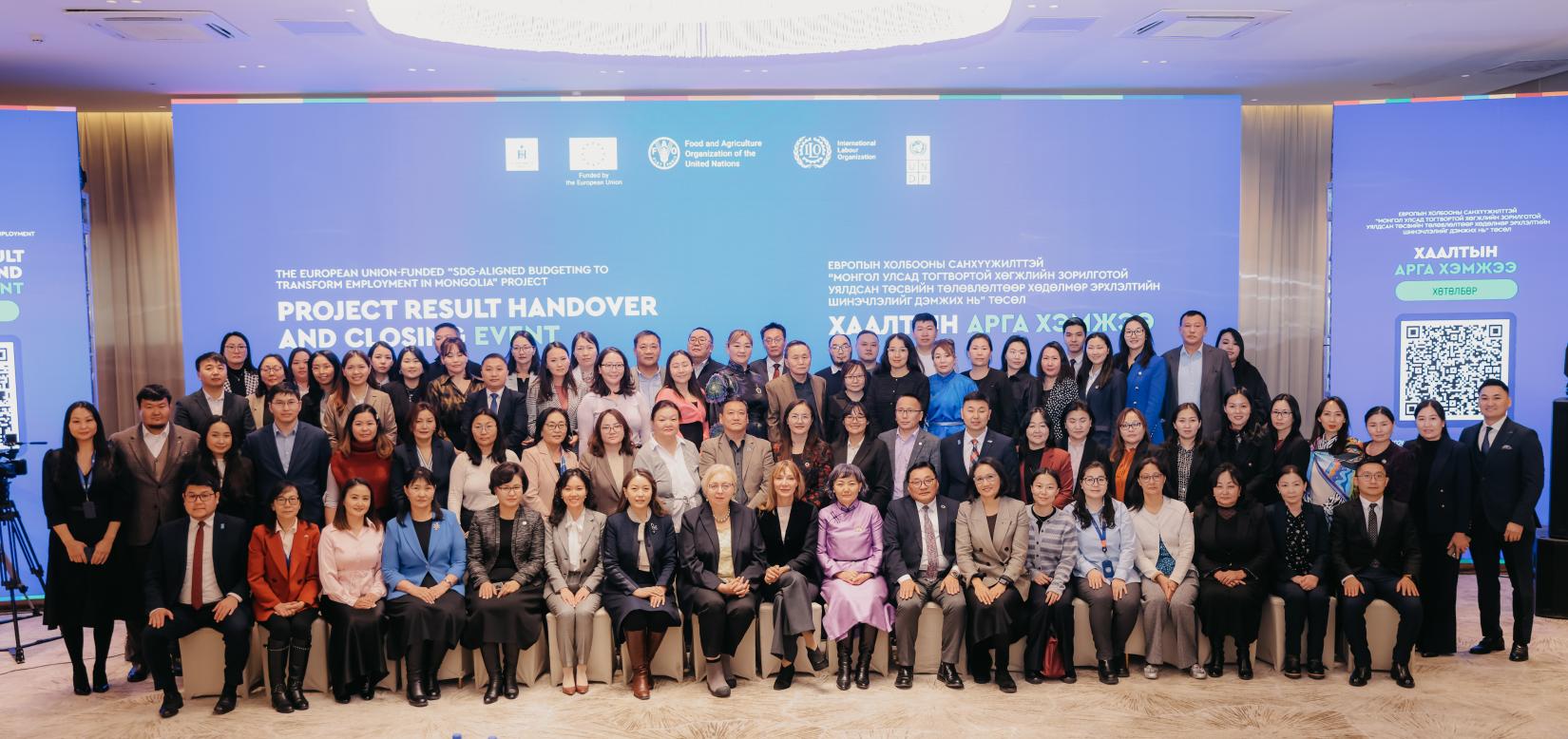
Supporting Mongolia’s public health campaign: The introduction of the HPV vaccine into Mongolia's National Immunization Program in 2024, led by WHO Mongolia in collaboration with UNICEF Mongolia, marks a monumental step in the fight against cervical cancer, a leading cause of death among women in the country. WHO provided essential technical support, policy development, and healthcare worker training, while UNICEF ensured vaccine procurement and equitable distribution. This collaborative effort has significantly strengthened the immunization system, achieving 21% nationwide coverage of HPV vaccination among eligible girls and boys, advancing the goal of a cervical cancer-free Mongolia.
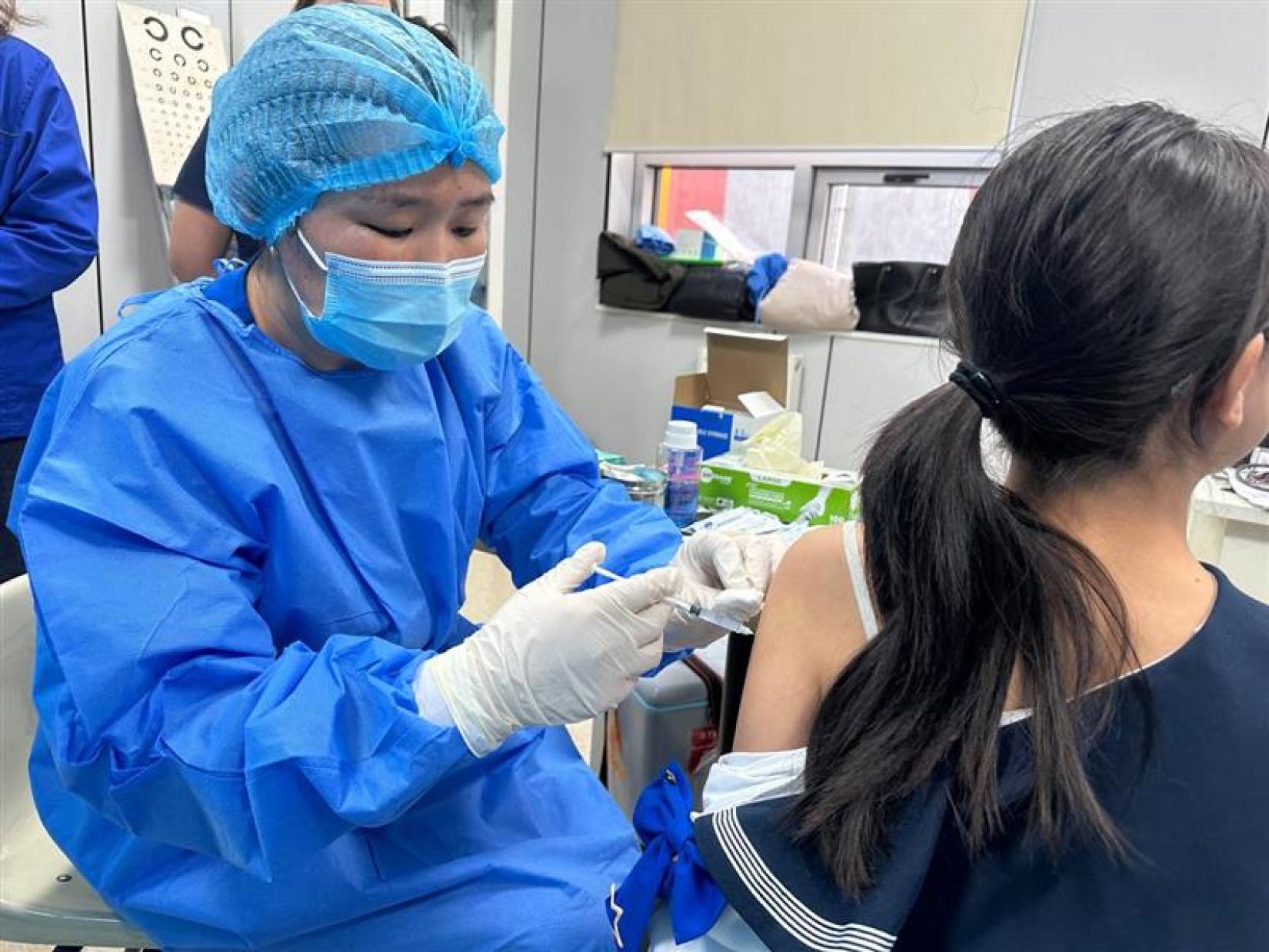
UN system’s advocacy and efforts for human rights and well-being of the people of Mongolia: The UN Country Team led the advocacy and policy support in advocating for labour rights, raising awareness on forced labour issues of the migrant workers, empowering youth in their labour rights through dispute settlements mechanisms with support from ILO while IOM has advocated for and promoted the voting rights of Mongolian diaspora communities abroad during the 2024 Parliamentary elections and a record-breaking number of 9,768 diaspora members have cast their ballot, marking a 77% increase in the number of diaspora registered. Furthermore, UN Mongolia unanimously raised their voices to stand up against Gender-based Violence in Mongolia through a strong activism campaign under UNFPA leadership. UN-Habitat and WHO Mongolia jointly worked to support policies for human-centred, healthy, and livable urban development in Mongolia, focusing on promoting low greenhouse gas emissions, social equity, and alignment with international standards and UN recommendations.
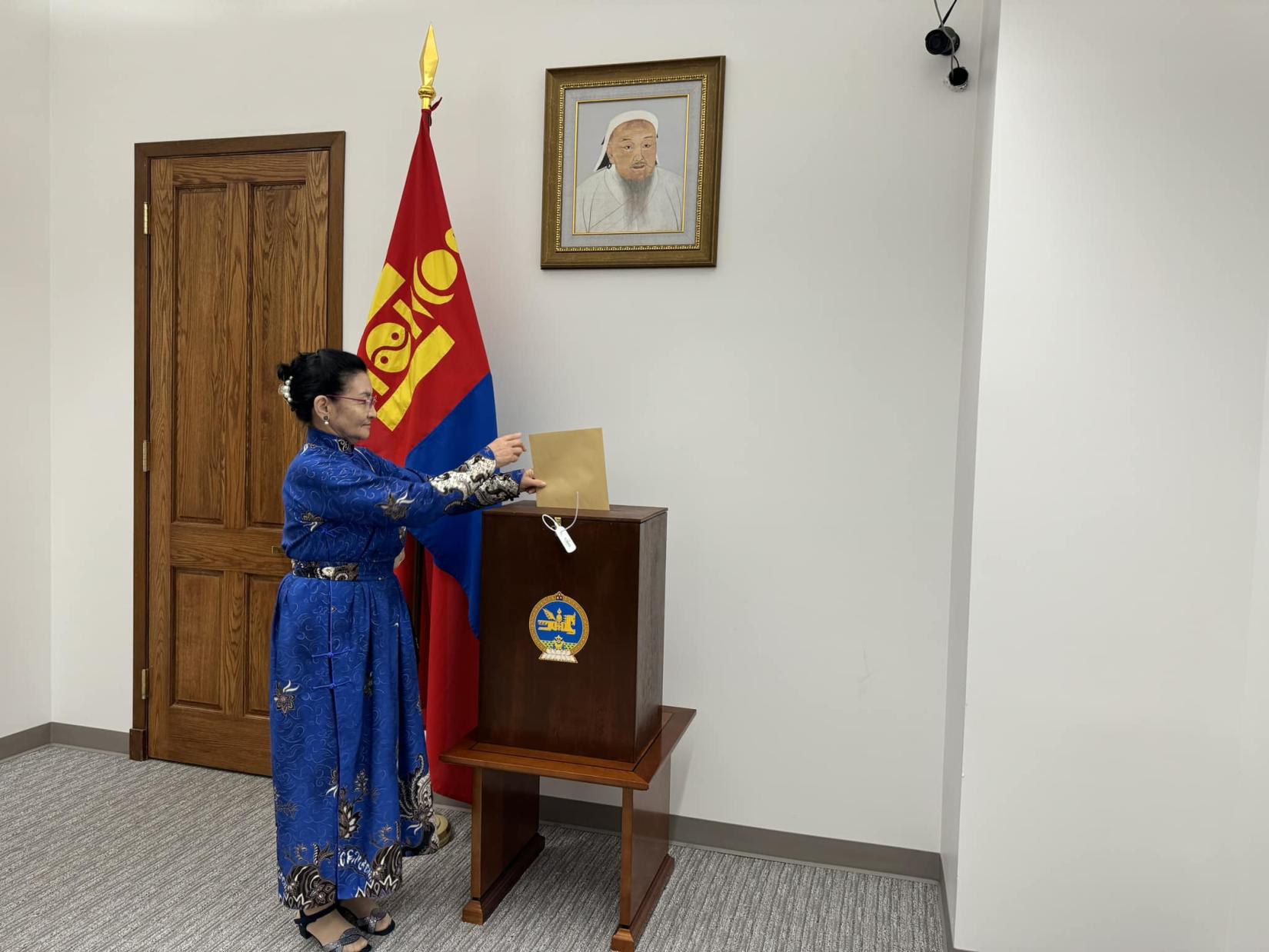
UN Support for Economic Diversification and Value-Added Production: The UN Mongolia is contributing to the diversification of Mongolia's economy, promoting value-added production. In 2024, the International Year of Camelids, declared by FAO, spotlighted the vital role of camelids in sustaining livelihoods across Mongolia and other countries and promoting value-added camel production. Complementary to these efforts, with UNIDO's support under the World Bank-funded Export Development Project, three Mongolian meat enterprises achieved international Halal certification. This milestone enables them to export Halal meat to Gulf markets, advancing Mongolia's integration into global value chains and strengthening its economy.
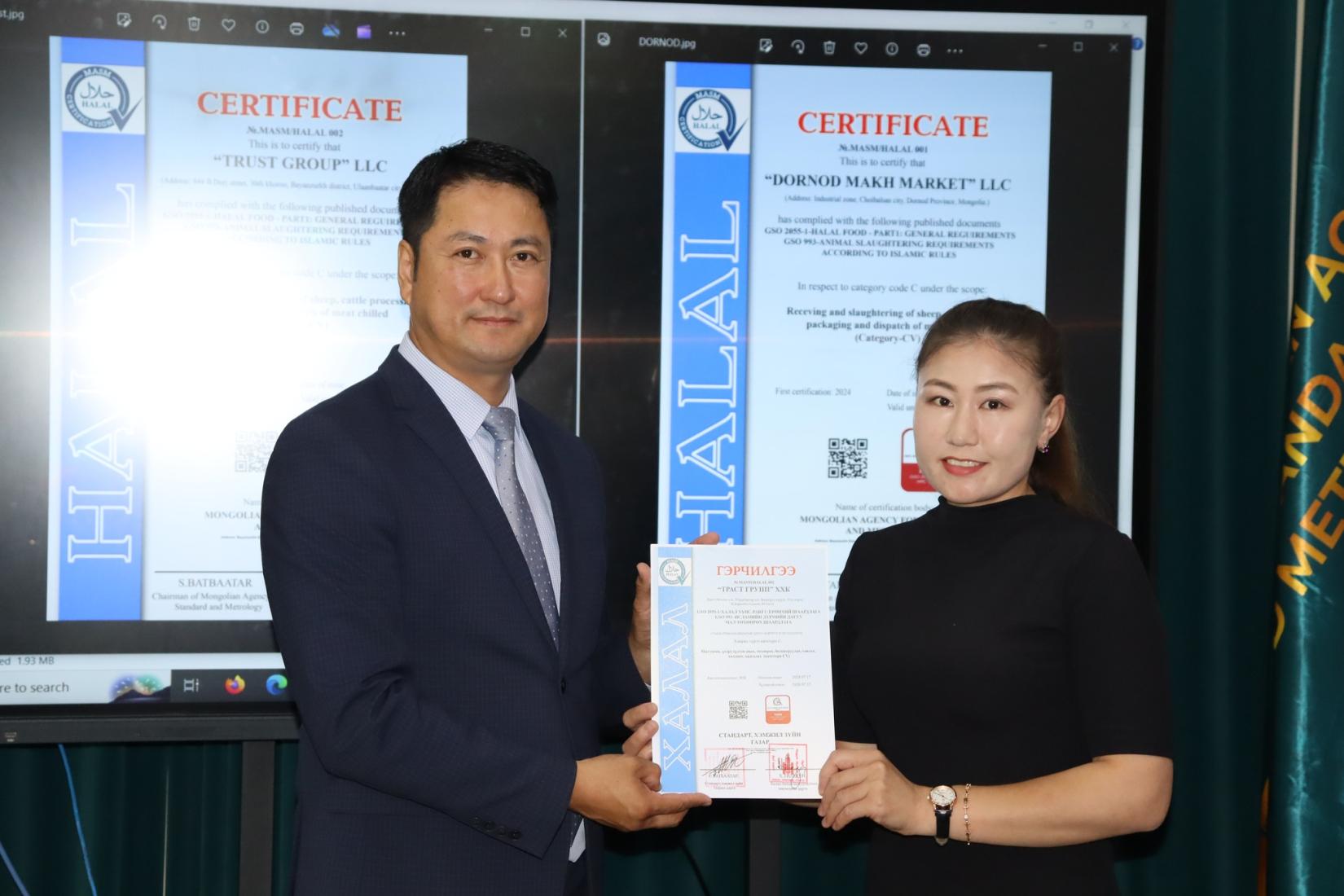
Celebrating the UN Day with the Prime Minister of Mongolia: The UN family in Mongolia celebrated its most significant day – the UN Day alongside esteemed guests, including Prime Minister Oyun-Erdene Luvsannamsrai, who visited the UN House to commemorate 63 years of partnership between the UN and Mongolia. In his address, the Prime Minister highlighted the UN's invaluable support in Mongolia's journey to becoming an upper-middle-income country and reaffirmed the commitment to sustainable and inclusive development.

















